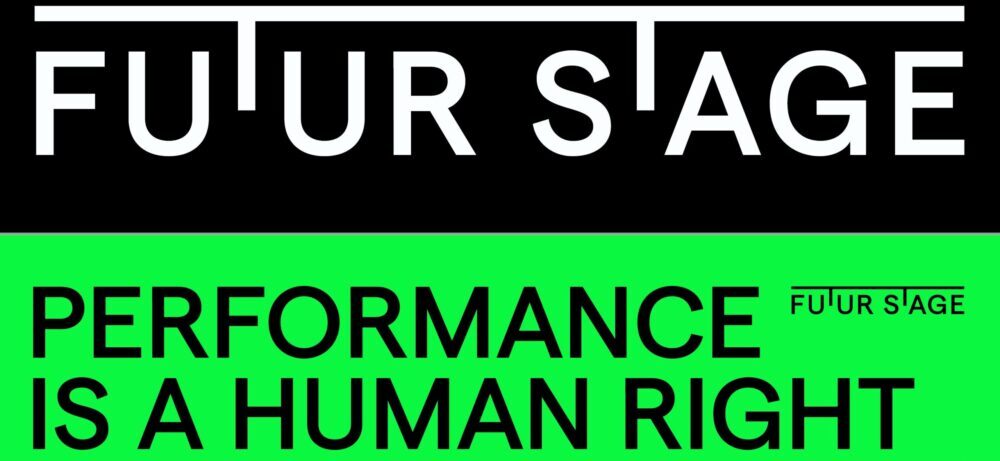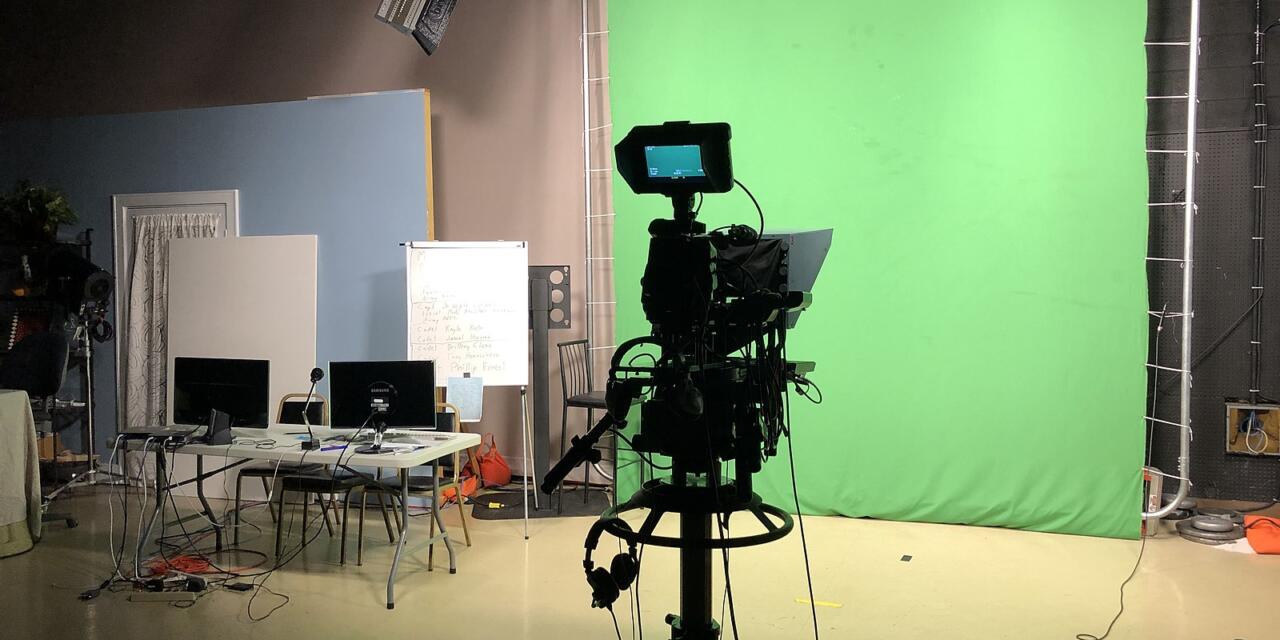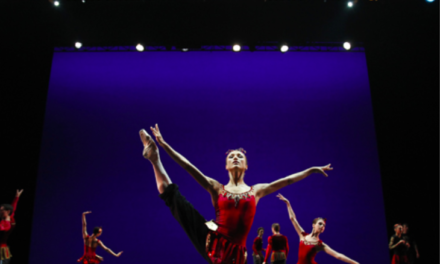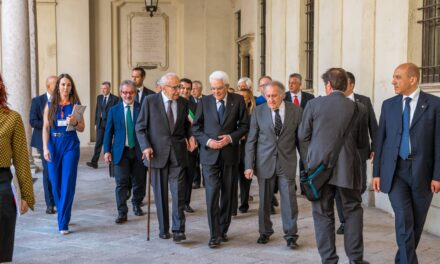A collaboration between metaLAB (at) Harvard and the Berkman Klein Center for Internet and Society, the Digital Access Research Project (DARP) developed out of metaLAB’s FutureStage project, which was concerned with the future of the performing arts and the social and technological challenges brought on by the pandemic. The DARP continues to pursue these lines of inquiry, with a renewed focus on the digital accessibility of performing arts events and the codification of streaming as part of the disability laws in the US and globally. The group consists of leading international experts in disability law, copyright law, digital technology, and performing arts management. The objective of the group is to develop a set of guidelines for policy- and lawmakers, and performing arts organizations that would balance the digital accessibility needs of formerly marginalized groups with the performer and institutional copyright rights.
During the pandemic, many theatres either live-streamed their shows or made older shows available online, making performing arts suddenly available to broader, previously underserved audiences, including the disabled, elders, the clinically vulnerable, the socially and economically excluded, and the geographically distant. As a result of this increased availability, formerly excluded participants came to see the provision of online performing arts as an essential accessibility feature. In March 2021 American Theatre, a publication of the Theatre Communication Group (TCG), published an article calling for the codification of the pandemic accessibility gains into updated ADA law as it relates to the performing arts.
In November of the same year, however, American Theatre published the results of a survey conducted by TCG on the financial viability of the streaming model developed during the pandemic. Sixty-four managing and artistic directors from 64 companies in 25 states responded to the survey, revealing that “all three categories of digital offerings (pre-recorded in-person, pre-recorded virtual, and live virtual) failed to deliver at the box office.” Many companies “reported a decrease in revenue of 90 percent or greater.”
The decline in revenue was not universal, as some companies exceeded their pre-pandemic revenues after adding digital streaming components. Nonetheless, by 2022 most theatre companies abandoned the streaming model. Likewise, the artistic blending of the performing arts and digital and social media culture and the richness and diversity of online and transmedia hybrid performing arts experiments that took place during the early months of the pandemic were curtailed and often abandoned.
One contributing factor was financial pressures resulting from the streaming copyright laws. In the US, many professional performing arts unions, including SAG-AFTRA (The Screen Actors Guild–American Federation of Television and Radio Artists) and the Actors’ Equity Association, stipulate that any use of show footage requires a special non-broadcast agreement. These requirements clash with the accessibility needs of marginalized audiences who cannot access cultural offerings in person.
The situation in Europe has been somewhat different. In 2022 the Arts and Humanities Research Council in the UK released a report on Digital Access to Arts and Culture (DAAC): “The final report summarizes an 18-month research project into the role of digital arts and culture in the UK during the pandemic, focusing on its accessibility implications. The report pays particular attention to the ‘pivot’ to online programming undertaken by many arts and culture organizations following the onset of COVID-19. It also explores how online and live programmes have interacted with each other, how digital accessibility tools are finding their way back into in-person activities, and what the wider accessibility implications of the on-going hybridization of arts and culture may be.” The report’s authors conclude by arguing that “hybrid (in-person and online) programming must form a key factor in future accessibility improvements: the more routes that exist for engaging with arts and culture, the easier it is to engage with, and the more inclusive it can become.” The DAAC report stipulates that “online content is itself an accessibility feature” and should be codified within the existing disability access laws.

The DAAC report also includes a series of recommendations, highlighting the universal accessibility of online streaming as well as the earnings potential for performing arts organizations. Furthermore, the authors assert that “hybrid programming has the potential to achieve broader inclusion goals.” Surprisingly, they note that “online participants are younger and more ethnically diverse than in-person visitors, which suggests huge potential for digital tools to engage new and more diverse participants.” The authors point out that “the pandemic has revealed barriers to engagement for many people previously not perceived as having accessibility requirements.”
Currently, in the US, the Americans with Disabilities Act (ADA) provides specific guidelines for accessibility of performing arts events, but they are limited to space and architectural accessibility (ramps, wheelchair-accessible routes of travel, accessible bathrooms, and spaces for wheelchair users and their companions), interpreters or surtitles (for deaf audience members), and website accessibility (including accessible and equal ticketing processes). Given that the law was last updated in 2010, streaming of a performance or providing a video version afterward is not part of the ADA requirements.
Responding to the need for updated copyright laws, in November 2022 the European Theatre Convention released Performing Arts Recordings and Broadcasts: A Practical Manual on Author’s and Related Rights, written by EU copyright experts at the University of Liège and the University of Mons (Belgium), who identified “the various legal issues that arise across Europe when recording performances and broadcasting them online.” The manual “offers practical advice on writing contracts to address these challenges in a simple way.” The goal of the manual is to “help people working in theatre and the performing arts broadcast recorded performances online.” In December 2022, AEPO-ARTIS, Association of European Performers’ Organisations also published the Perfomers’ Rights Study Update 2022.
The objective of the Digital Access Research Project (DARP) is to further the pursuit of digital accessibility of performing arts events while developing strategies and methodologies for improved copyright content management. Drawing on research from the EU and the UK on the accessibility implications of online theater, as well as related requirements regarding author and performers’ rights when broadcasting live performances, the DARP group will detail promising practices and replicable strategies that address both accessibility and author and performers’ rights for theater companies that wish to continue offering performing arts events that can be streamed and made available online.
The project is coordinated by Magda Romanska (Principal Researcher, metaLAB).

RESEARCH GROUP MEMBERS:
Magda Romanska, Principal Investigator at metaLAB (at) Harvard, and Faculty Associate at Berkman Klein Center for Internet and Society, Chair of the DARP, https://mlml.io/m/magda-romanska/
Doaa Abu-Elyounes, UNESCO and Berkman Klein Center at Harvard, https://cyber.harvard.edu/people/dabuelyounes
Jim Augustine, former COO of Zuckerberg Media, co-founder of Assemble Stream, and co-founder of the League of Live Stream Theater, https://www.realrightgood.com/augustine
Christopher T. Bavitz, Wilmer Hale Clinical Professor of Law; Managing Director, Cyberlaw Clinic at the Berkman Klein Center for Internet and Society, https://hls.harvard.edu/faculty/christopher-t-bavitz/
Maxime De Brogniez, Lecturer of Law at University of Liège, Belgium; co-author of Performing Arts Recordings and Broadcasts: A Practical Manual on Author’s and Related Rights, https://www.uliege.be/cms/c_9054334/fr/repertoire?uid=U224011
Steven Chaikelson, Professor of Law and Theatre, Columbia University, https://www.law.columbia.edu/faculty/steven-chaikelson
Sam Gold, Theatre Director, https://en.wikipedia.org/wiki/Sam_Gold
Paul Harpur, Affiliate, The Harvard Law School Project on Disability; The University of Queensland Law School, https://law.uq.edu.au/profile/1110/paul-harpur
Ioan Kaes, General Secretary, AEPO-ARTIS, https://www.aepo-artis.org/about/
Kasia Lech, Associate Professor of Theatre, University of Amsterdam, https://www.uva.nl/en/profile/l/e/k.k.lech/k.k.lech.html
Richard Misek, Professor at University of Bergen, Norway; Principal Investigator of Digital Access to Arts and Culture, https://digiaccessarts.org/report/
Doug Reside, Curator, Theatre Collection, New York Public Library, https://www.nypl.org/staff-profiles/doug-reside
Jessica Rizzo, Lawyer at Montgomery McCracken’s Litigation Department, JD, University of Pennsylvania Law School; DFA Yale School of Drama, https://www.mmwr.com/attorney/jessica-rizzo/
Talia Rodgers, Head of Higher Education at Digital Theatre, and her team, Hessom Arta and Kristina Irlam, https://www.digitaltheatre.com/
Ilinca Todorut, Artistic Director, International Online Digital Theatre Festival, http://thetheatretimes.com/iotfestival/
Antoine Vandenbulke, Professor of Law at University of Mons, Belgium; co-author of Performing Arts Recordings and Broadcasts: A Practical Manual on Author’s and Related Rights, https://www.uliege.be/cms/c_9054334/fr/repertoire?uid=U214995
Heidi Wiley, Executive Director of European Theatre Convention, https://www.europeantheatre.eu/
This post was written by the author in their personal capacity.The opinions expressed in this article are the author’s own and do not reflect the view of The Theatre Times, their staff or collaborators.
This post was written by The Theatre Times.
The views expressed here belong to the author and do not necessarily reflect our views and opinions.


















